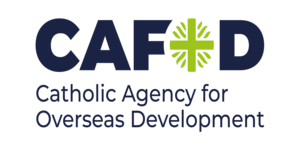Community / Land projects / Namibia - ELISSA - Livelihood Project Phase 2
Namibia - ELISSA - Livelihood Project Phase 2

€0
04/22 - 03/25
Active
This project is part of
Implementing Organisations
Donors
Data Providers
General
The frequent occurrence of droughts and floods in has resulted in persistent food insecurity manifested in its unavailability and inability to access. NRCS has responded to the perennial food shortages by supporting food security through cash-based assistance and seeds distributions to affected communities in the country. Though subsistence agriculture is the main source of food when rainfall is reliable, small-scale farmers are constrained by limited financial support to purchase farming inputs and knowledge on agricultural production. Previous interventions by NRCS supporting farmer with agricultural inputs including water harvesting have demonstrated an increase on production capacity. Small-scale farmers who were supported in 2019 with cash assistance for the emergency and seeds and technical capacity building as recovery support, have reported increase in the number of meals from 1 to 3 per day and reduced negative coping strategies. It was also noted that training farmers in modern techniques was very important before seeds are distributed. To address the perennial food shortages the devastated livelihoods capitals need to be strengthened/restored by building the capacity of the small-scale farmers in agricultural adaptation strategies and how to access markets, as well as linking them to financial institutions that support agriculture. This is in line with NRCS’ strategy to complement government efforts on food security and nutrition in the country by working closely with the Ministry of Agriculture, Water and Land Reform (MAWLR) as well as the Ministry of Health and Social Services (MOHSS) to add value. This project is in line with the Red Cross Resilience Plan for Southern Africa and BRC’s strategies for livelihoods and chronic hunger. Based on these findings, NRCS and BRC started this project in September 2020 convinced that capacity building and financial inclusion would improve the resilience of small-scale farmers, particularly women in Zambezi region. After a year and a half, the national society has been able to gather many lessons learned, which have led them to present a project that fits the capacities of the national society. Each of the components of this project have made slight progress in their implementation. The intervention will enhance small scale farmers' and Red Cross volunteers ‘resilience through the improved financial and technical capacity for Good Agricultural Practices (GAP) and rollout of the Easy Volunteer Handbook in the communities.  Small scale farmers will increase agricultural production as a result of improved financial and technical skills, by the provision of several trainings on GAP and specific commodities as well as the distribution of farming inputs. The intervention will focus on 3 regions with 1,600 farmers.  Communities and Red Cross volunteers will adopt favorable attitudes and practices about savings and investment in their livelihoods through saving and loan associations. The programme targeted 5 regions with 625 people and 300 Red Cross Volunteers.  The predominant focus through restricted funding will be on objective 3 of BRC’s hunger crises strategy. Â



